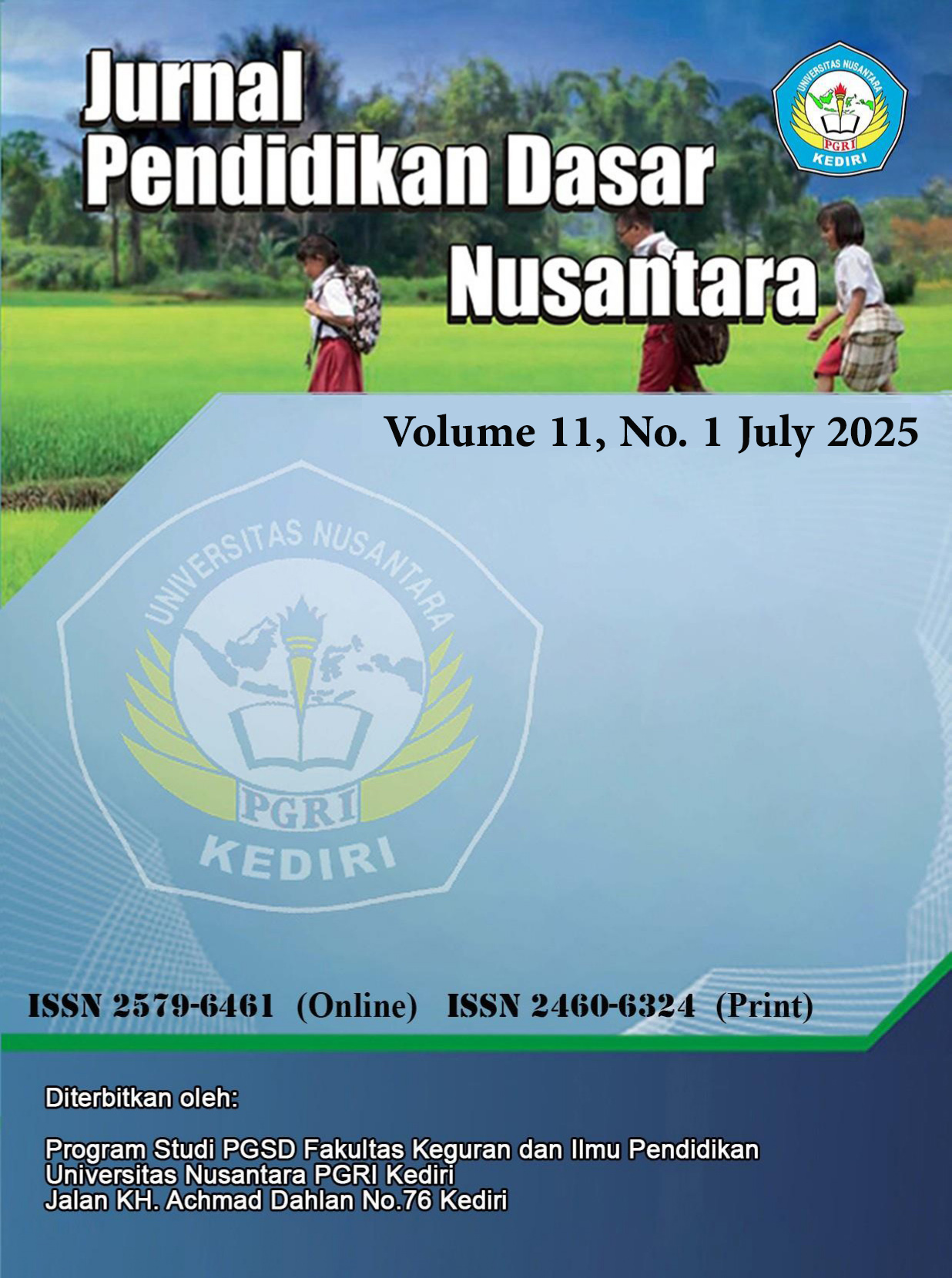Analysis of the Use of Interactive Quizzes in Elementary Schools
DOI:
https://doi.org/10.29407/jpdn.v11i1.25337Keywords:
Interactive quiz, Learning, Elementary schoolAbstract
This study aims to analyze the use of interactive quizzes in the learning process in elementary schools. The approach used was descriptive qualitative. The research stages included planning, conducting observations, interviews with teachers and students, distributing needs questionnaires, and reviewing literature from online journals during the 2020–2024 period. Data collection techniques included direct classroom observation, structured interviews, questionnaires, and literature review. The data obtained showed that interactive quizzes such as Bamboozle, Wordwall, and Quizizz have been used in learning, particularly in Indonesian and science subjects. The quizzes were presented in both group and individual formats, with an attractive display that stimulated active student engagement. Teachers stated that interactive quizzes facilitated the delivery of material and improved student understanding. Meanwhile, students felt more enthusiastic and less bored during the learning process. The results of observations and interviews showed that average student grades increased, with scores ranging from 75–95. This finding is supported by literature studies that confirm that interactive media has a positive impact on motivation and learning outcomes. In conclusion, the use of interactive quizzes is an effective and enjoyable learning strategy that can improve the quality of learning in elementary schools.
Downloads
References
Dimas Virgiawan, M., Marlini, S., & Studi Pendidikan Matematika, P. (2018). Pengembangan Kuis Interaktif Berbasis E-Learning Dengan Menggunakan Aplikasi Wondershare Quiz Creator Pada Mata Kuliah Belajar dan Pembelajaran Matematika. Journal Pendidikan Matematika, 12(1), 29–42. www.e-learning.unsri.ac.id
Husna, L., Zunaidah, F. N., & Primasatya, N. (2022). Pengembangan Multimedia Interaktif Materi Ekosistem pada Kelas V Sekolah Dasar. Jurnal Pendidikan Tambusai, 6(1), 388–396.
Indra Sukma, K., Handayani, T., & Muhammadiyah Hamka, U. (2022). Pengaruh Penggunaan Media Interaktif Berbasis Wordwall Quiz Terhadap Hasil Belajar IPA di sekolah dasar. Jurnal Cakrawala Pendas, 8(4). https://doi.org/10.31949/jcp.v8i2.2767
Meryansumayeka, Virgiawan, M. D., & Marlini, S. (2018). Pengaruh model pembelajaran terhadap hasil belajar matematika siswa. Jurnal Pendidikan Matematika, 12(1), 5094-11943.
Rahma, R., & Nurhayati, N. (2021). Pengembangan Media Interaktif Berbasis Game Edukasi Pada Pembelajaran Matematika. Jemas: Jurnal Edukasi Matematika Dan Sains, 2(1), 38–41.
Wicaksono, L. (2016). Bahasa Dalam Komunikasi Pembelajaran Luhur Wicaksono. In J P P Journal of Prospective Learning (Vol. 1, Issue 2). http://jurnal.untan.ac.id/index.php/lp3m
Downloads
Published
Issue
Section
License
Copyright (c) 2025 Retno Wulandari, Farida Nurlaila Zunaidah, Tutut Indah Sulistiyowati (Author)

This work is licensed under a Creative Commons Attribution-ShareAlike 4.0 International License.
Authors who publish with this journal agree to the following terms:
- Copyright on any article is retained by the author(s).
- The author grants the journal, the right of first publication with the work simultaneously licensed under a Creative Commons Attribution License that allows others to share the work with an acknowledgment of the work’s authorship and initial publication in this journal.
- Authors are able to enter into separate, additional contractual arrangements for the non-exclusive distribution of the journal’s published version of the work (e.g., post it to an institutional repository or publish it in a book), with an acknowledgment of its initial publication in this journal.
- Authors are permitted and encouraged to post their work online (e.g., in institutional repositories or on their website) prior to and during the submission process, as it can lead to productive exchanges, as well as earlier and greater citation of published work.
- The article and any associated published material is distributed under the Creative Commons Attribution-ShareAlike 4.0 International License
































